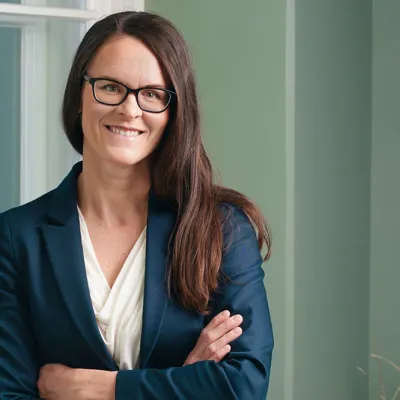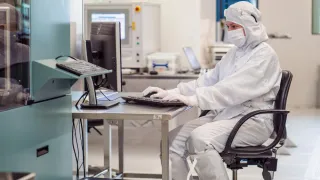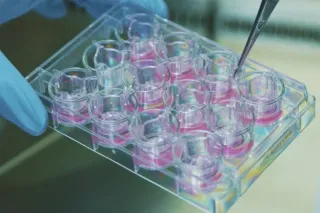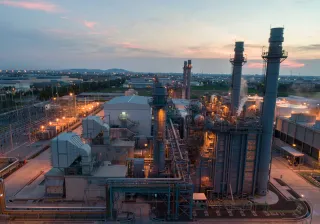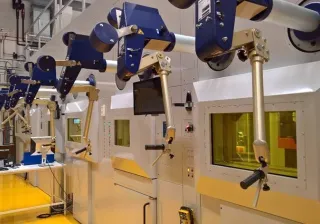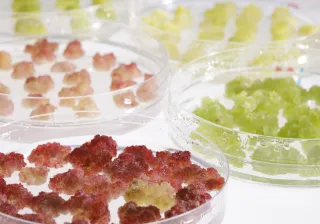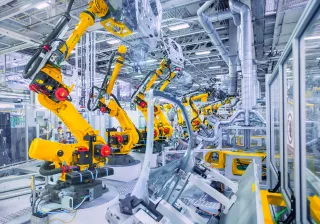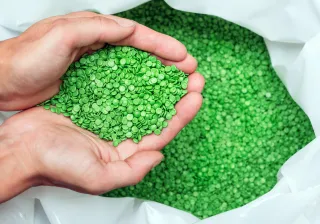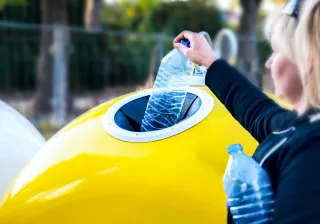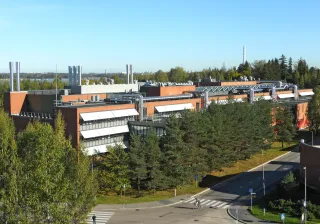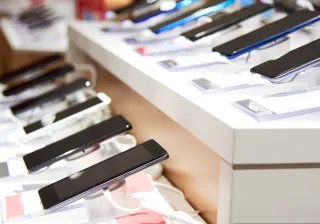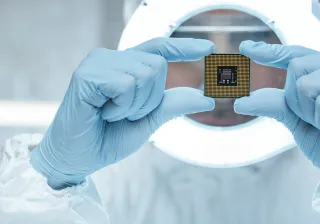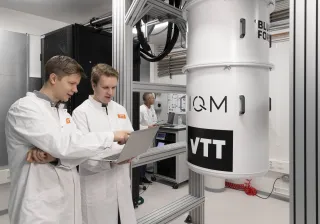Investing in research and development is crucial to ensure Finland's competitiveness and growth. A year ago, VTT announced five research investments in energy, sustainable materials and healthcare that will help industrial sectors innovate and scale up innovation into industrial activity. VTT also published an initiative to create a national centre of expertise in quantum technology and microelectronics.
In the first year, these innovation projects in Espoo, Jyväskylä and Oulu have brought together more than 140 business partners. The projects have triggered new doctoral theses and other research initiatives. The research investments offer cooperation opportunities for universities, research organisations and companies. They drive the emergence of new technologies, innovations and products.
Research and development is carried out in partnership with companies, which also contribute to the funding of projects.
"These research investments enable Finnish companies to innovate and grow their international business. In Finland, the government has decided to invest in creating sustainable growth and has committed to a long-term increase in RDI investment. In particular, more funding should be directed towards strengthening research-business cooperation and sharing business risk, so that companies can invest more boldly, develop new solutions and increase their knowledge. An excellent example is Kvanttinova, a piloting environment for microelectronics and quantum technology, which aims to enable the construction of Europe's leading semiconductor cluster in Finland," says Laura Juvonen, VTT’s Senior Vice President for Strategy.
This is how research investments have progressed during the first year:
1. Finnish district heating reactor
VTT's ambitious goal is to launch the construction of the first district heat reactor in Finland together with domestic operators, using the nuclear energy concept developed by VTT (LDR-50). The project has got off to an excellent start and, as part of its commercialisation, the startup Steady Energy was born, with the aim of having the first commercial district heat reactor in operation by 2030. At VTT, more than 70 researchers worked on district heat reactor design in 2023. The work has extensively developed VTT's expertise in all areas of nuclear energy and has also led to numerous new technological innovations and patents. VTT has also been active in setting up SMR-HUB activities to help domestic industry and companies to take advantage of developments in the field. By focusing on district heating, VTT is supporting Finland's carbon-neutrality goals in the entire energy sector, not just in electricity production.
2. Solutions to plastic and textile recycling with new piloting platform
A new piloting platform to produce solutions for recycling multi-material plastics and textiles has attracted widespread interest from industry. The recycling of products containing many different materials, packaging, textiles and composites is a challenge that no single party can solve alone. This requires broad cross-sectoral cooperation and well-functioning value chains.
The investments in the piloting platform have been planned together with industry. VTT has a prioritised investment list of pilot-scale equipment and lines to develop and prove new recycling technologies. Around 60 industrial actors have been actively participating in the planning. New research topics have also been jointly identified, and work is under way to build research projects that meet the needs. Currently, VTT has 65 corporate partners in ongoing research projects in the field of recycling of multi-materials. The first new piloting device will arrive at VTT Bioruukki pilot centre in Espoo in February 2024.
3. A piloting environment for sustainable fibre products to significantly reduce forestry energy and water consumption and enable new product innovations
The energy-intensive forest industry is constantly looking for ways to reduce the energy and water consumption of its production. VTT's new research initiative based on an anhydrous production process has attracted great interest from the sector. In order to carry out the research investment, the most important equipment manufacturers have been identified. The supplier will be selected will take place in early 2024. The estimated delivery time for the new piloting line to be built in Jyväskylä is 12–18 months. The line can produce traditional products such as cardboard and tissue paper, but also, for example, non-woven fabrics that can make use of new bio-based textile fibres. The research investment is the subject of a three-year, 6.5 million euros research project involving 41 industrial partners. The research theme is complemented by a recently launched 9.8 million euros EU project to reduce energy consumption in the drying process and to electrify the process. Drying is by far the largest energy consumer of the processes on the production line. VTT's share of the project is 3.1 million euros.
4. Digital development platform for biosynthetic materials: new materials with natural means 10 times faster
Synthetic biology enables the replacement of fossil raw materials with renewable raw materials and the production of completely new materials with superior properties. However, the development of production of biosynthetic materials has been challenging and slow. VTT's research investment will create a toolbox and development platform that uses modelling, artificial intelligence and automation to accelerate the design and production of biosynthetic materials.
Computational methods have been developed and tested for the design of new PHA plastics and protein materials. The results have been published in several scientific articles and one patent application has been filed. The biggest purchases are for a new bioreactor, data platforms and an increase in computing capacity. Several research professors are working on the topic and there are three new PhD students. The project portfolio supporting this work is close to 10 million euros, and international competition is strong.
The research investment has established contacts, in particular with US hubs, and highlighted the importance of biotechnology and synthetic biology in promoting the bioeconomy at the World Bioeconomy Forum in Washington. In addition, the US Science and Technology Committee visited VTT, as a result of which biotechnology and biomanufacturing were selected as themes for closer Finland-US cooperation under the leadership of VTT.
5. Piloting environment for medical devices
The piloting environment will enable product development and prototyping of new innovative photonics-based medical devices in a regulated manufacturing environment. The investment will be used to develop the research environment and manufacturing capabilities of VTT’s research facilities in Oulu. Photonics is based on the combination of optics and electronics, which enables many medical applications, from diagnostic devices to therapeutic tools that can be used in hospitals and home care.
The MedPhab association, coordinated by VTT, has been set up around this topic with five other international companies. It is Europe's first pilot line dedicated to the manufacturing, testing, validation and scaling-up of medical devices, enabling accelerated product launches with lower R&D costs.
Several research projects have been launched around the research investment, with a total project portfolio of more than 6 million euros and nearly 20 corporate partners. The first piloting units have been installed in the VTT’s cleanroom in Oulu. The piloting environment will be operational by the end of 2024.
6. Kvanttinova: A Finnish RDI cluster in microelectronics and quantum technology
Kvanttinova is a joint initiative of VTT, the City of Espoo, Aalto University, the semiconductor industry group of Technology Industries of Finland and other companies to build a new cleanroom environment for microelectronics and quantum technology, shared by companies and research actors. It will be seamlessly connected to the Micronova cleanroom in Otaniemi, Espoo. Around Kvanttinova, it is aimed to create one of Europe’s semiconductor clusters. The State is financing the purchase of shared equipment for Kvanttinova. So far, 19 companies have committed to the project. In Kvanttinova, companies and research actors will be located in close proximity to each other in the same premises and cleanroom, so their RDI activities will benefit from a pilot production line operated by VTT.
As a limited liability company with a government special task, VTT does not pay dividends to its owners but invests the profit into developing excellence, research and equipment investments. Last year, VTT decided to invest 15 million euros in five investments mentioned above. The initiative of promoting the piloting environment for microelectronics and quantum technology is progressing in collaboration with the City of Espoo, Aalto University and the industry group of the semiconductor industry group of Technology Industries of Finland. The investments are seed-capital.
Read more in the previous investment news on 17 January 2023.
